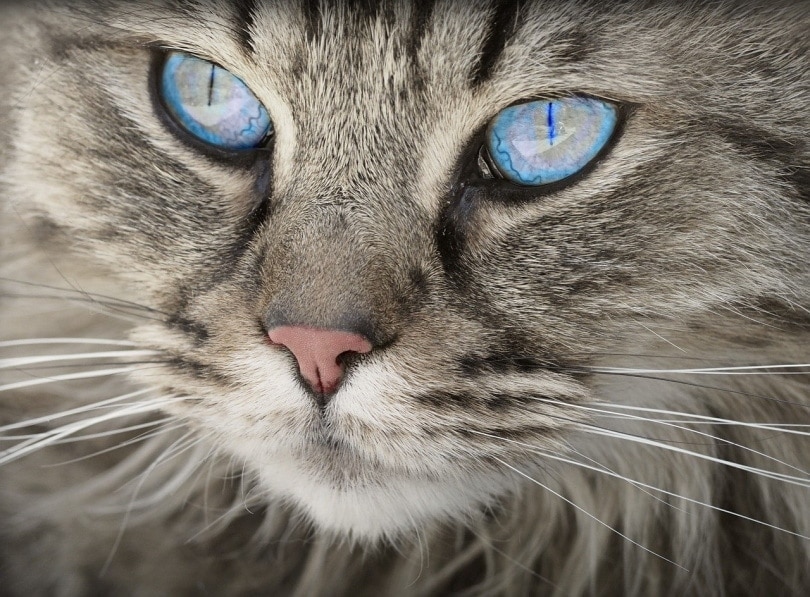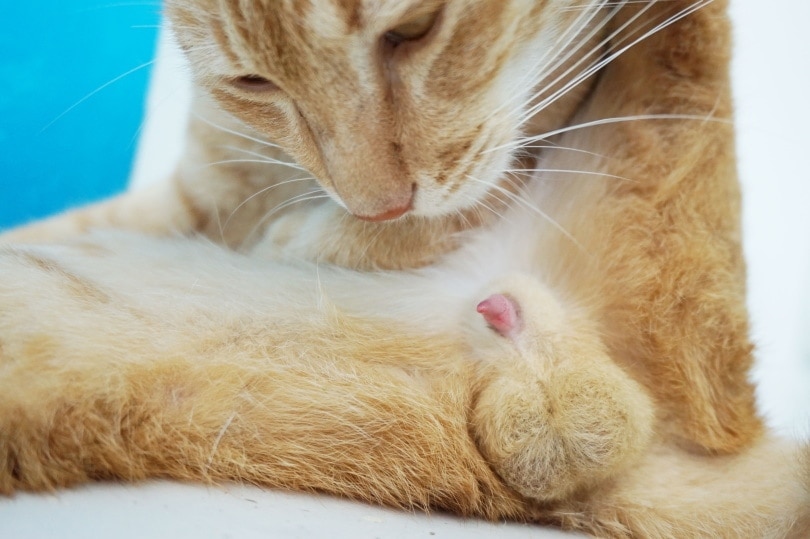How Much Do Cat Blood Tests Cost? 2024 Pricing Update

Updated on
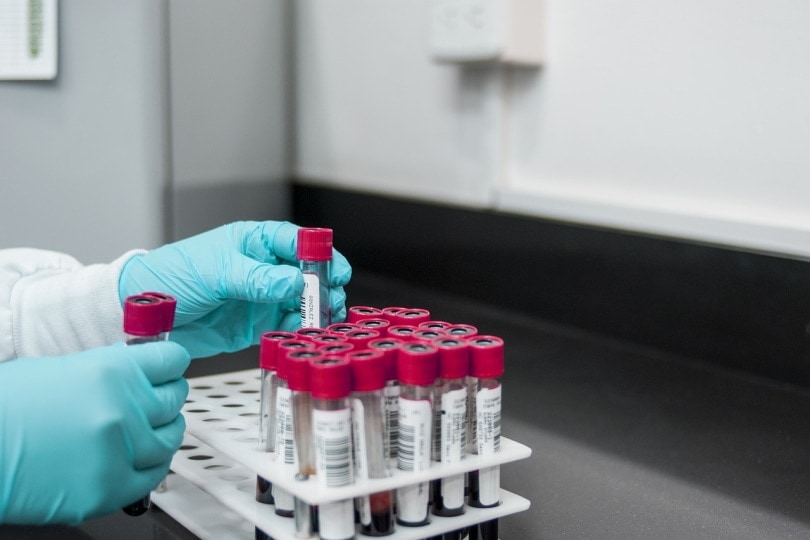
Click to Skip Ahead
Your cat’s blood tests are part of routine veterinary care and are often recommended as part of an exam or for pre-surgical testing. Your vet may also recommend more frequent testing for older cats or cats with health conditions. In both situations, blood testing can give your vet a lot of insight into your cat’s health and may detect the early onset of disease.
Of course, blood testing on top of the vet exam and other expenses can be pricey, so you may be wondering how much cat blood tests cost? It depends on the type of test, how many tests, and other factors. You can expect to pay between $55 and $175 for each cat blood test.
The Importance of Cat Blood Tests
Cats are very good at hiding illness. As animals that are both predators and prey, hiding pain or health conditions is an instinctual behavior that keeps them safe. For some diseases and health conditions, if you wait until they show signs, it may be too late to manage or cure them effectively.
Even basic blood testing, which includes a complete blood count (CBC) and a chemistry panel, are noninvasive tests that reveal a lot of information about your cat’s health. As part of a comprehensive exam, blood test results can be a vital piece of the puzzle that can help a vet accurately diagnose—and treat—your cat.
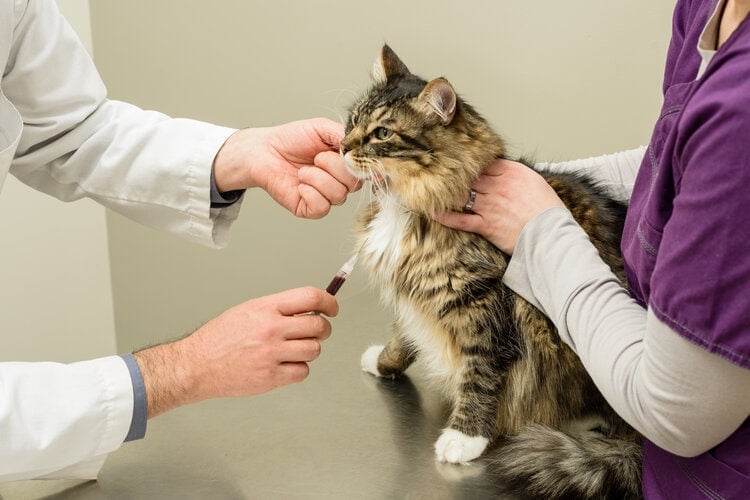
How Much Does Cat Blood Testing Cost?
Blood tests can range anywhere from $55 to $175 per test. Each test can carry its own costs and depends on the clinic, whether the tests are performed in-house or sent out, and the geographic location. Most veterinary clinics will show an itemized bill with each individual blood test and its cost.
A CBC/chemistry panel may be between $100 and $200, but note that certain areas or emergency clinics may charge more. Here is a cost breakdown of common tests at the Affordable Animal Hospital Silver Lake:
| CBC/chemistry panel: | $185 |
| Pre-op blood test: | $155 |
| Basic thyroid panel: | $160–$185 |
| Heartworm test: | $50–$75 |
| FeLV/FIV test: | $70 |
These are for one clinic and not a standard in clinics across the country. You may expect more or less for your cat’s blood tests, but your vet should be able to give you an estimate.
Additional Costs to Anticipate
Cat blood tests are less likely to come with an additional fee than other veterinary procedures, but it can happen if the vet needs to send the tests out to a lab facility. In most cases, the cost of the test is inclusive of any applicable fees.
Another circumstance that may lead to additional fees is if the routine blood tests reveal something that your vet wants to investigate further, such as abnormal liver values. This may require specific tests to get more information and create a clearer picture of your cat’s health.
How Often Should I Have My Cat Blood Tested?
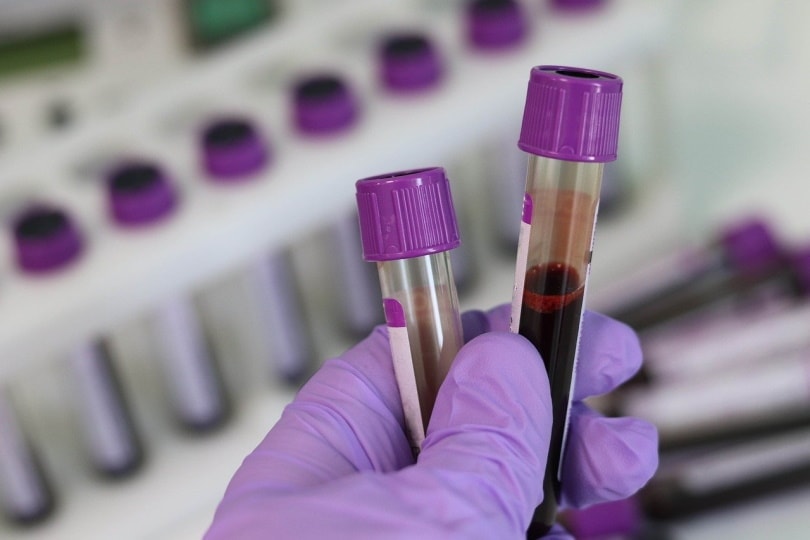
Your cat will need blood tests prior to any surgical procedure to ensure it’s healthy enough to undergo anesthesia. This applies to all surgeries, even minor or routine surgeries like dental cleaning or spay/neuter.
Beyond that, blood testing should be part of your cat’s annual veterinary exams from the age of four onward. Cats can develop chronic health conditions as they age, including diabetes, thyroid conditions, kidney disease, and liver disease. These tests should include a CBC and chemistry panel.
Cats that are outdoor or indoor-outdoor should have an FELV/FIV test every year, no matter the age. FeLV/FIV is a test to detect feline leukemia virus (FeLV) and feline immunodeficiency virus (FIV)retrovirus that affects cats and can be transmitted from saliva or nasal secretions. Cats with FeLV and FIV have a weakened immune system and are susceptible to many diseases and death. These diseases are both contagious and incurable but can be managed with care.
Does Pet Insurance Cover Cat Blood Tests?
Cat blood tests are important for routine care, diagnostics, and emergency care, but whether they’re covered by pet insurance depends on the details of the policy. For example, a pet insurance policy may cover blood tests in emergency situations, but not as part of routine exams. However, you can choose to add routine or wellness coverage to most policies.
Many policies will cover the costs of diagnostics and treatments for eligible accidents and illnesses, and blood tests may be covered in these cases. Blood tests may not be covered if they’re necessary to monitor a chronic condition that’s pre-existing. It’s best to contact your pet insurance company and discuss the details of your policy regarding blood tests for your cat.
What To Expect From Cat Blood Testing
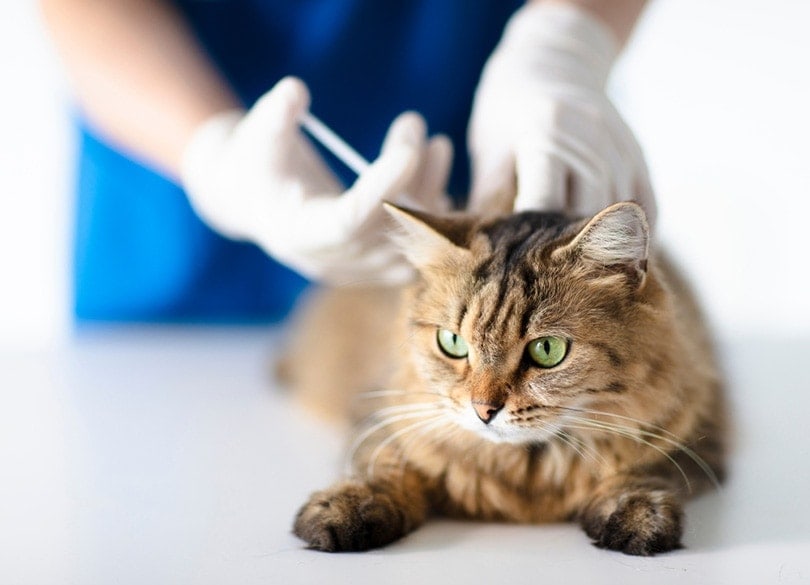
Cat blood testing is a noninvasive test that takes around 10 seconds. A small amount of your cat’s blood is pulled from a vein into a tube, which is then sent for analysis or completed in-house. The CBC checks red blood cells, white blood cells, and platelets.
Red blood cell count: If the count is high, your cat could be dehydrated. If it’s low, your cat is anemic. The condition of the red blood cells also gives clues into the health of the bone marrow, spleen, and kidneys.
White blood cell count: The number and kinds of white blood cells present in your cat’s blood can indicate whether your cat has an infection, inflammation, or cancer. It’s a vital tool in the overall diagnostic picture.
Platelets: These proteins are necessary for blood clotting. A low platelet count could indicate a problem that needs to be addressed and is important to know before undergoing surgery.
The chemistry panel is a separate blood test that checks the serum in your cat’s blood. This fluid is filled with enzymes and other elements that can reveal the state of your pet’s metabolism and electrolytes. Increases in specific enzymes can indicate the condition of your cat’s organs, such as the kidneys, gallbladder, and liver, while electrolytes can indicate hydration levels and endocrine diseases.
Conclusion
Blood testing can provide a window into your cat’s health and should be included as part of routine exams for middle-aged and older cats. The costs of blood tests can vary according to the type, the circumstances, the clinic, and the geographic location, but they’re a necessary expense for your cat’s health and wellness.
Featured Image Credit: fernandozhiminaicela, Pixabay



